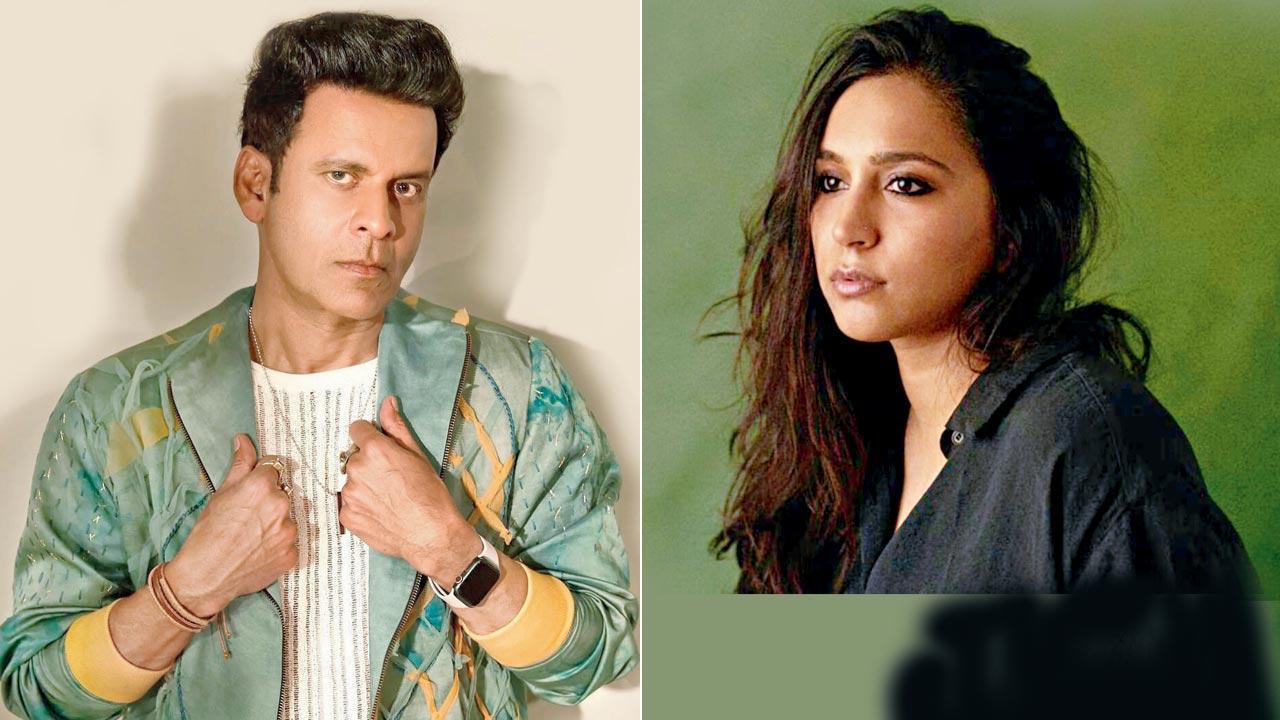
Asserting that the industry must take decisive steps to improve the portrayal of female characters, actress Zoya Hussain recently reflected on her journey back to the screen with Manoj Bajpayee’s production, Bhaiyya Ji.
Merely four days after watching the Manoj Bajpayee-led Sirf Ek Bandaa Kaafi Hai, Hussain found herself being offered a role in the actor’s forthcoming venture, Bhaiyaa Ji. Despite having delivered highly praised performances in projects such as Grahan (2021) and Laal Kaptaan (2019), her appearances on-screen have been sparse. Hussain contends that this has less to do with her being selective and more to do with the types of roles she is offered. “I am not picky,” she clarifies, aware of the reputation she has gained for her infrequent appearances. “After my debut film, Mukkabaaz [2017], I kept getting offered the same kinds of roles. All opportunities that come my way, do so organically. Manoj sir saw my film, believed I am a good performer, and offered me the part,” she recounts, adding that she has declined several commercial offers where her characters were relegated to minor roles. “There was nothing for me to do in those films. I am not seeking female-oriented films alone, but I’d [at least] want character-driven roles.”
Though details about her role in Bajpayee’s Bhaiyaa Ji remain under wraps, Hussain assures that her character defies the usual trope of a subservient girl. Delving into the broader issue of female representation in Bollywood, Hussain criticizes the prevalent categorization of female characters into two primary stereotypes—either they are depicted as sexy glam icons or helpless damsels in distress. “When our writers create these characters, they seek women to fit these moulds. Writing has to be diverse. For decades, we’ve served the male gaze—the protagonist is a man, and women are thrown in as an afterthought. There are no well-rounded characters. Now, however, while we have more nuanced female characters, we’ve stereotyped the ‘independent woman’. [She’s often shown as] someone who smokes, drinks, and rebels.”
Contemplating her career trajectory, Hussain admits that she has had her share of struggles. “I didn’t make a big splash,” she notes. “My [prominent] works came out during Covid, and fell under the radar. It is taking a little longer [to find success] than it does for people who have a modeling background, or industry support.
. I struggled during the casting process. A female studio-head once told me, ‘You are dusky, and curvy; you’ll be in indie-type movies.’ It still makes me angry. In our industry, discussions on being color and size inclusive are superficial. That has to change.”
Returning to Bhaiyaa Ji, Hussain expresses enthusiasm about the role, one that she feels breaks away from conventional portrayals. Despite Bollywood slowly inching towards creating more complex female characters, she insists that genuine, positive portrayal is still a long way off.
Throughout her career, Zoya Hussain has consistently pushed against industry norms to advocate for better female representation. The actress has turned down numerous roles that she felt either diminished her character or perpetuated negative stereotypes. Her decision to be selective doesn’t stem from pickiness but from a deeply rooted desire for roles that are meaningful and character-driven. Her journey to achieving recognition has not been a straightforward path, largely due to the timing and the nature of the roles she has been offered.
Persistent in her endeavors, Hussain’s focus remains on seeking roles that inspire and provide depth, advocating for a more inclusive and nuanced portrayal of women in cinema. “For decades, the industry primarily served the male gaze, where the protagonist is a man, and women are merely an afterthought. There’s an urgent need for this to change, and it must start with the writing,” she asserts.
Moreover, the superficiality with which Bollywood addresses issues of color and body size inclusivity remains a troubling concern for Hussain. Reflecting on her personal experiences with industry stereotypes, she recalls being advised that her physical attributes confined her to “indie-type” movies, an assessment that still incites anger and highlights an ongoing struggle for broader inclusivity.
As the conversation around women’s roles in film continues to evolve, actresses like Zoya Hussain are at the forefront, challenging stereotypes and pushing for significant changes in how female characters are conceived and portrayed. Her journey, though fraught with challenges, stands as a testament to perseverance and a relentless pursuit of respectful and diverse female representation in Bollywood.
In conclusion, as Bollywood makes cautious strides in redefining the portrayal of women, Zoya Hussain remains a vocal and pivotal figure, advocating for substantial progress. Her role in Bhaiyya Ji, still shrouded in mystery, promises to be a departure from her previously offered parts, potentially setting a new standard for how female characters are depicted. Through her continuous advocacy and selective choice of roles, Hussain not only enriches her own career but significantly contributes to the industry’s evolving narrative on inclusive and well-rounded female representation.












